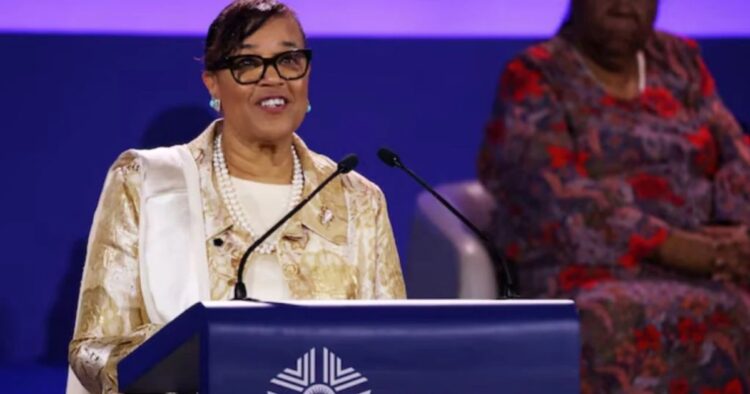Patricia Scotland, the Commonwealth Secretary General, has highlighted India’s potential to lead a just and equitable energy transition. She emphasized that India, despite not being historically responsible for the climate crisis, should not emulate the West’s polluting practices from the 19th century.
In an interview with PTI, Scotland noted that India has the opportunity to become a beacon of hope for the Global South by sharing expertise and technology within the 56-nation Commonwealth, representing 2.7 billion people. She pointed out that India can exemplify a new, clean, and safe development model.
“India is a developing country, which was not historically responsible for creating this (climate) crisis. So, India is in a similar position to many of the Global South countries. And that is absolutely true,” said Scotland. Despite this, she acknowledged that India faces severe climate consequences, including extreme heat, floods, and intense monsoons, necessitating action.
Scotland stressed that India should avoid repeating the West’s failed development model, which led to the current climate crisis. “Why should India wish to emulate that which others have done before … (and) failed? I would be very disappointed if India was reaching back to 18th and 19th century solutions and repeating what others have done,” she stated.
At the 2015 UN climate talks in Paris, countries committed to limiting the global temperature rise to 1.5 degrees Celsius above pre-industrial levels to avoid the worst impacts of climate change. The Earth’s global temperature has already increased by around 1.2 degrees Celsius due to greenhouse gas emissions.
Scotland mentioned that poor and middle-income countries argue that the current global warming is disproportionately caused by historical emissions of developed countries. They believe they should have the right to use fossil fuels for poverty alleviation and economic growth.
However, Scotland emphasized that India, unlike the West during its development, understands the consequences of its actions and has the chance to lead by creating a regenerative model of development using a circular economy. “India and Prime Minister Mr. Modi have done some extraordinary things in terms of building new cities. What if India can become the exemplar of how you create a regenerative model of development using a circular economy, which actually works out,” she said.
Scotland praised India’s renewable energy efforts, noting that “35 percent of its energy consumption” comes from renewable sources. She also highlighted India’s leadership in initiatives like the International Solar Alliance and the Coalition for Disaster Resilient Infrastructure as examples of what can be achieved through innovation and collaboration.
India aims to increase the share of non-fossil power capacity to 50 percent by 2030 as part of its updated national climate plan. Currently, India has a total installed power capacity of 446 gigawatts, with renewable energy accounting for 195 gigawatts. It also aims to reduce the emissions intensity of its GDP by 45 percent by 2030 compared to 2005 levels.
Scotland concluded by expressing her hope that India will continue to lead by example and inspire the Global South. “I would be disappointed if the hope that India is for the Global South were to be diminished. I would be so saddened because India knows that because she has revolutionised development with so many technologically innovative approaches which others are emulating. I would want them to emulate the best in India,” she added.

















Comments